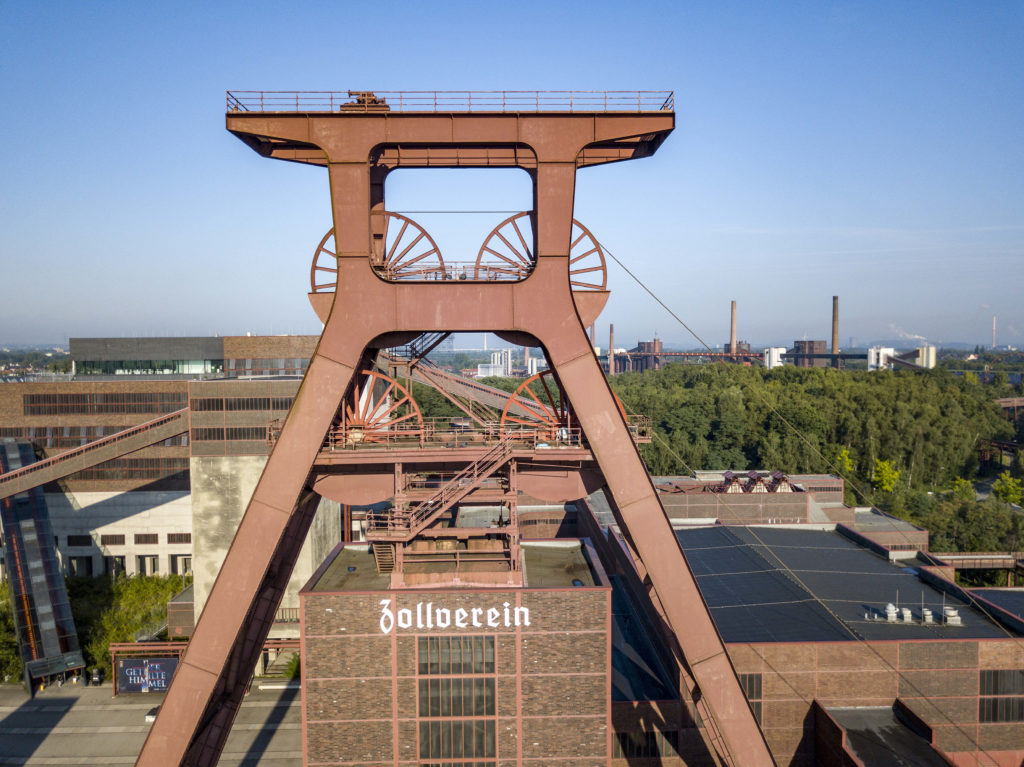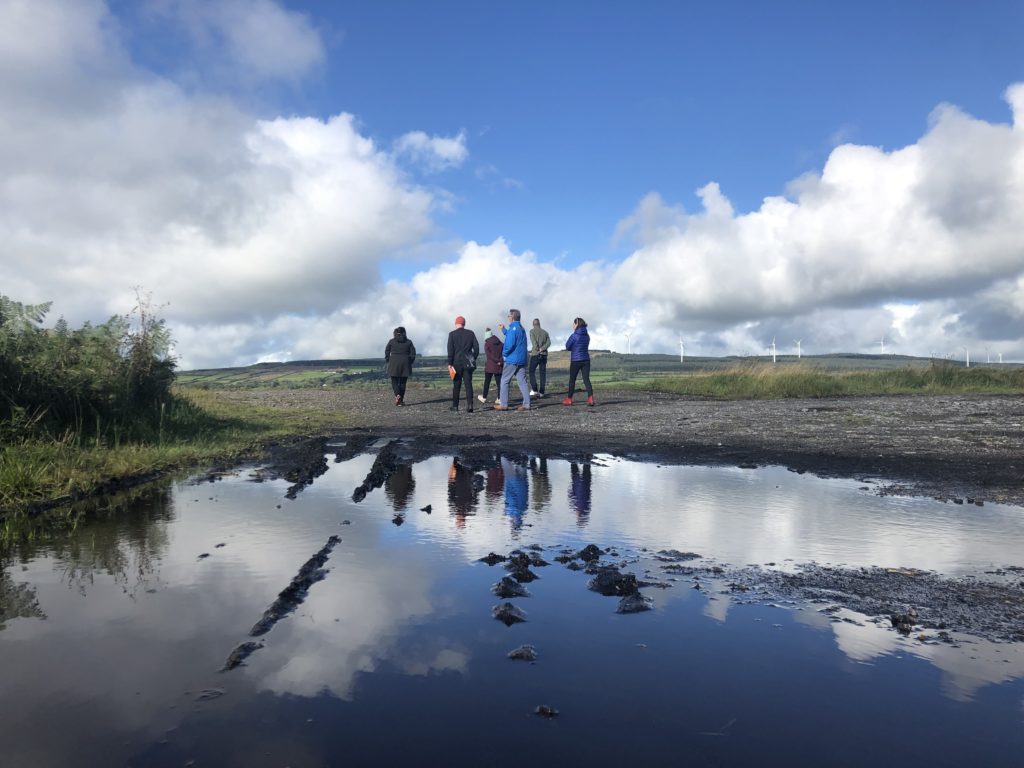07.06.22
10.06.22
As a New European Bauhaus partner organisation, the Irish Architecture Foundation is excited to host an online panel in the New European Bauhaus Festival 2022! The Festival’s main themes are beauty, sustainability and inclusiveness. It will feature debates, great speakers, artistic performances, exhibitions and networking opportunities. The Festival runs from 9-12 June and aims to build bridges between the worlds of research, science and technology, education, civil engagement, art, culture and architecture. Find the full New European Bauhaus Festival programme here.
Communities in Transition – Reimagining Place, Communities and Climate Action is our first Reimagine Session of 2022. We aim to spark discourse and inspire action to support communities at the heart of climate action policies. In this event, we are exploring innovative post-industrial projects which place sustainability, culture, heritage, and aesthetics at their heart, as a way of reimagining a new future for these places.
The Zollverein Foundation will present “the most beautiful coal mine in the world”, a major industrial complex in Germany that is now a World Heritage Site. We will also hear from Urbane Künste Ruhr about the Emscherkunstweg, an art trail that follows the Emscher River which has been restored back to a near-natural state from its recent role as an industrialised channel through a coal-mine region. Finally, members of Ireland’s peatlands communities will share their journey so far and their aspirations for the future. By hearing from impressive and inspiring examples of post-industrial renewal, we wish to provide space to consider how our peatlands communities in transition can benefit and even thrive.
This Session will be facilitated by Hans Zomer, CEO of Global Action Plan, an environmental organisation which has been a key partner in the Irish Architecture Foundation’s Workers’ Villages programme.
When: Friday 10 June, 15:00-16:30 (Irish time)
Where: Online. Click here to register.
Background:
This event links with Workers’ Villages, a project by the Irish Architecture Foundation which delves into the legacy of the villages designed by Frank Gibney in the 1950s for the workers of Ireland’s burgeoning state-owned peat industry. In Ireland we are in a pivotal time, where the way we support our communities through the transition away from industrial peat harvesting can have major implications for broader societal changes. By living with and in the built architecture of this important phase of Ireland’s industrial heritage, peatlands communities have become guardians of its legacy and are concerned about how that is protected. We want to make sure their voices are heard. By working with these communities, the IAF aims to develop a new peatlands architecture that gives recognition to the labour and innovation of the workers, celebrates the architectural vision of their villages, and looks to a great design to reimagine our relationship with the peatlands.
Workers’ Villages is supported by Creative Ireland’s Creative Climate Action Fund. The IAF Reimagine placemaking programme is funded by the Arts Council, the Department of Rural and Community Development, and the Department of Housing, Local Government and Heritage. Reimagine was made possible through seed funding by the Creative Ireland Programme’s National Creativity Fund.
The Zollverein Foundation is the owner of the buildings and above-ground facilities and operates the Zollverein UNESCO World Heritage Site in Essen. In 2001 the “most beautiful coal mine in the world” was inscribed in the World Heritage List. Since then the coal mine and coking plant of Zollverein have been retained as an identity-establishing monument, simultaneously offering cultural highlights such as museums, concerts and events. With more than 1.5 million visitors per year Zollverein is the biggest tourist attraction in the Ruhr area and a growing economic hub with about 150 businesses from the creative and cultural industry.
Urbane Künste Ruhr is a polymorphous decentralised institution for contemporary art in the Ruhr region. Urbane Künste Ruhr works together in co-operation with local and international partners to initiate projects in public spaces, exhibitions, residency programmes and events. A long-term cooperation project is the permanent sculpture trail Emscherkunstweg; the Emscher river project is one of the most extensive river restoration efforts currently taking place.
Photos:
Zollverein World Heritage Site, by Jochen Tack. Courtesy of the Zollverein Foundation.
Britta Peters, Artistic Director of Urbane Künste Ruhr, with Marta Dyachenko and Julius von Bismarck and their artwork “Neustadt”, 2021. Photo by Daniel Sadrowski, courtesy of Emscherkunstweg.
A group on a Reimagine Workers’ Villages biodiversity tour with Global Action Plan Ireland. Photo by project architect Evelyn D’Arcy.


Britta Peters, Artistic Director of Urbane Künste Ruhr, with Marta Dyachenko and Julius von Bismarck and their artwork "Neustadt", 2021. Photo by Daniel Sadrowski, courtesy of Emscherkunstweg. Photo of Britta Peters, Artistic Director of Urbane Künste Ruhr, with Marta Dyachenko and Julius von Bismarck and their artwork "Neustadt", 2021. Photo by Daniel Sadrowski, courtesy of Emscherkunstweg. "Neustadt" is a series of scaled models of demolished buildings. They are sitting on and amongst the models, outdoors, with trees in the background.

A group on a Reimagine Workers' Villages biodiversity tour with Global Action Plan Ireland. Photo by project architect Evelyn D'Arcy. A group on a Reimagine Workers' Villages biodiversity tour with Global Action Plan Ireland. Photo by project architect Evelyn D'Arcy.
07.06.22
01.06.22